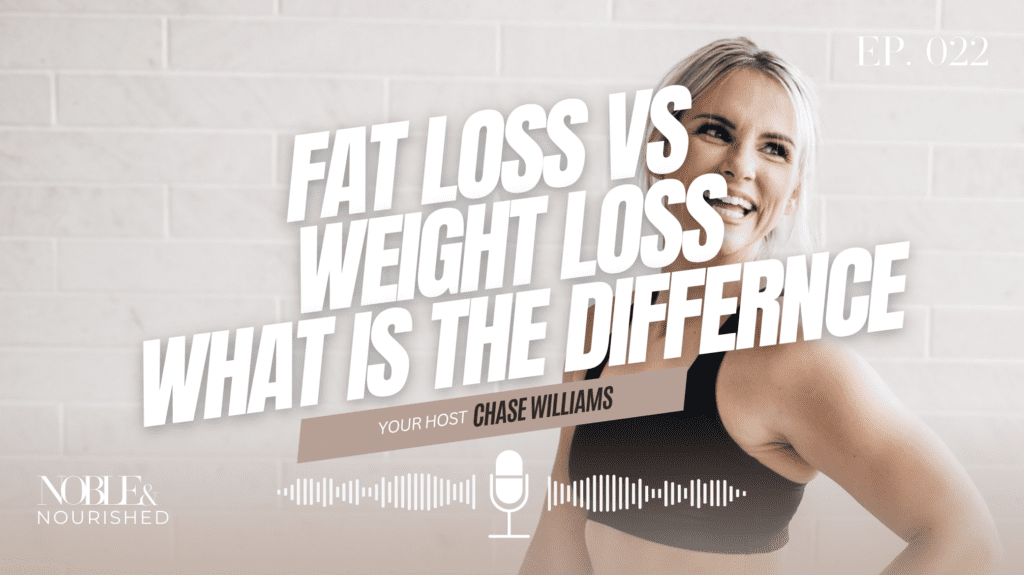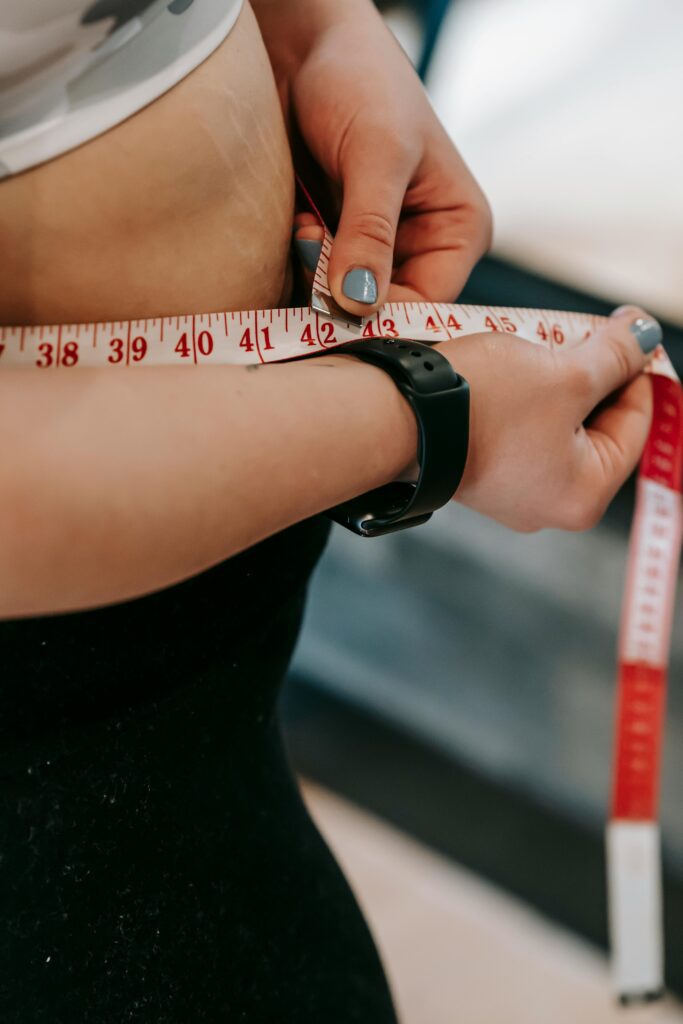As a fitness coach who works with ambitious, high-achieving women, I’ve noticed a common misconception about weight loss versus fat loss. Many women come to me saying, “I have a weight loss goal,” but after digging deeper, what they’re actually seeking is fat loss.
Today, I want to break down the important distinctions between these two concepts – and it’s not just semantics. Understanding this difference can transform your approach to fitness and help you achieve the results you’re truly looking for.
The Science: Weight Loss vs. Fat Loss
Weight Loss Explained
Weight loss simply refers to a reduction in the number you see on the scale. This number includes everything in your body – organs, bones, muscles, water, recently consumed food, and yes, fat.
This number can fluctuate by several pounds in a single day based on:
- Hydration levels
- Salt intake
- Carbohydrate consumption
- Hormonal shifts
- Time of day
That’s why when I ask clients to do weigh-ins, I insist on consistent conditions: same time, same day, same circumstances. But even with these controls, the scale only tells part of the story.

Fat Loss Explained
Fat loss specifically refers to reducing the fat stored in your body while preserving or even building lean muscle mass. This is a much more precise target and ultimately creates the health improvements and physical changes most women actually seek.
During true fat loss, when you create a consistent caloric deficit through nutrition and exercise, your body breaks down stored triglycerides in your fat cells. These get converted to fatty acids and glycerol, which enter your bloodstream to be used as energy.
Over time, as this process continues, your fat cells actually shrink in size – they don’t disappear, but they become smaller. Meanwhile, with sufficient protein and resistance training, your body preserves or builds muscle tissue, which is metabolically active and helps maintain your results long-term.
The Perfectionist Trap
If you’re like many of the ambitious, detail-oriented women I work with, you might have a complicated relationship with the scale. The number offers what seems like an objective measurement – a clear target, a way to track progress. For performance-driven women, this can be incredibly appealing because it’s concrete and measurable.
But this is where perfectionism can actually sabotage your progress. When you become fixated on a specific number, you miss the bigger picture of what’s happening in your body.
Consider this common scenario: You’ve been consistent with your nutrition and exercise for two weeks. You’re feeling energetic, your clothes fit differently, you’re sleeping better – but the scale hasn’t moved, or worse, it’s up a pound. Your perfectionist mind immediately jumps to: “It’s not working. I’m failing. I need to restrict more or exercise harder.”
This thinking can lead to extreme measures that ultimately work against true fat loss:
- Severe calorie restriction that slows metabolism
- Overtraining that increases stress hormones
- An all-or-nothing mentality that’s unsustainable
That’s likely why so many women tell me they “fall off” around the five to six-week mark. The truth is that the scale might not be moving because you’re building muscle while losing fat. Or you might be retaining water due to your menstrual cycle. Or perhaps you had more sodium yesterday, causing temporary water retention.
What You Really Want
When I ask my clients to dig deeper beyond “I want to lose weight,” here’s what they usually say:
- “I want to feel confident in my clothes.”
- “I want to be able to wear shorts this summer at my son’s baseball game.”
- “I want to have more energy for my kids and career.”
- “I want to be strong enough to pick up my children.”
- “I want to get up and down off the floor easily.”
Notice that none of these outcomes are actually about a number on the scale. They’re about how you feel, how you function, and how you show up in your life.
This is where the mindset shift happens. When we focus on fat loss rather than weight loss, we naturally align our actions with these deeper desires. We prioritize nutrition that fuels our body and supports muscle. We engage in exercise that strengthens us rather than just burns calories.

A Better Approach to Measuring Progress
For high-achieving women, this means channeling your drive and determination toward meaningful metrics:
- Strength gains in the gym
- Energy levels throughout the day
- How your clothes fit
- Progress photos
- Body measurements
All of these data points together give you a much more complete picture than just the number on the scale.
Taking Action
If you’re ready to shift your focus from weight loss to fat loss, I’ve created a comprehensive guide that lays out everything you need:
- How to calculate your macros
- Sample workout plans
- Strategies for busy, driven women who want clear, actionable steps without the fluff
CLICK HERE TO GRAB THE FAT LOSS GUIDE
Remember, as high-achievers, we sometimes think we should be able to excel at everything independently, but having guidance and support can accelerate your progress while avoiding common pitfalls. You don’t have to do this alone.
Focus on sustainable fat loss, not just temporary weight loss, and you’ll create the lasting results you truly desire.
Chase Williams is a fitness coach specializing in helping high-achieving women reach their health and fitness goals through sustainable, science-based approaches.
+ view comments . . .